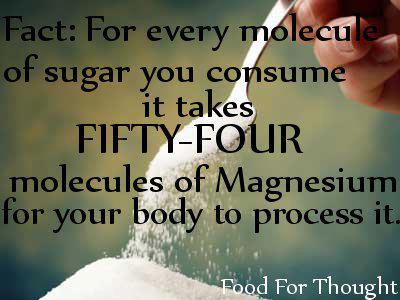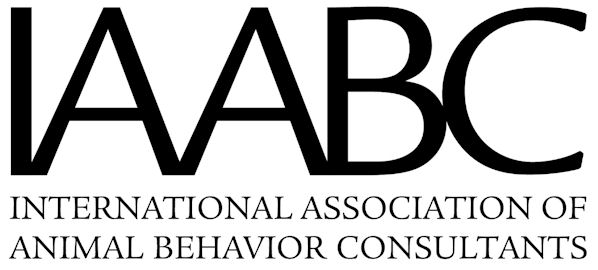Some barefoot trimmers have even been heard to say “you can’t allow your horse to go barefoot if you don’t feed magnesium”. This article will, I hope, debunk many myths and allow you to make an informed choice about whether your horse needs magnesium. Magnesium is a vital mineral which is freely available in grass. It has over 3,000 known uses in the body, assisting with everything from regulating blood sugar levels to formation of hormones and enzymes, production of muscle tissue, conversion of glucose to energy, maintenance of a healthy nervous system and formation of bone and red blood cells. It’s no wonder that magnesium is taking up so much attention.
Magnesium is a calmer isn’t it?
Magnesium has been sold as a calmer for many years now. The reason for this is that when a horse becomes deficient they often become spooky and stressed and magnesium is needed to help produce some of the hormones needed to dampen down the adrenalin response. This can start a vicious circle. The horse gets stressed and uses what little magnesium reserves it has to dampen down the stress response. The less magnesium in the system, the more stressed the horse becomes and the more magnesium is needed to dampen down the stress.
Other signs of deficiency
Lack of magnesium in the diet can lead to increased respiratory rates (the horse takes more breaths per minute), muscle tremors, loss of appetite and aggressiveness or ill temper. It is thought to be linked to grass sickness, stringhalt and azoturia. More recently a link has been made between magnesium deficiency and laminitis. Because magnesium is crucial to the deposition of calcium into the bones, magnesium deficiency can also produce all of the problems associated with calcium deficiency.
Why do horses become magnesium deficient?
It’s all a question of balance. Magnesium deficiency in the UK was comparatively rare before the introduction of chemical fertilisers. The most common type of chemical fertiliser is NPK which contains Nitrogen, Potassium and phosphorus, all of which will unbalance the diet when fed in excess. Nitrogen Nitrates have been shown to deplete magnesium levels in the soil as well as inhibit magnesium uptake in the gut. Phosphorus It is well known that calcium and phosphorus need to be balanced with each other. For every gram of phosphorus, you need at least 1.7 grams of calcium. When chemical fertilisers push phosphorus levels too high, it causes an unbalanced ratio which prevents magnesium uptake. PotassiumPotassium has very little attention paid to it. This is because until recently it was assumed that, as potassium is plentiful in British grass, and excesses are excreted in the urine, excesses or shortfalls are rare. However, more recent research shows that potassium needs to be balanced with sodium, in the same way that calcium and phosphorus need to be balanced. If sodium levels in grass are normal, but potassium levels are excessively high, it will cause an imbalance which inhibits magnesium uptake. Because sodium (salt) intake is too high in human diets, we often avoid feeding it to our horses which can cause sodium levels to drop too low.
What’s all the fuss about Magnesium?
As well as fertilisers, other vitamins and minerals have been found to have a close relationship with magnesium. B Vitamins Although some of the B vitamins are found in grass and hay, they are mainly produced by the microflora in various parts of the horse’s digestive system. When a horse’s digestive system becomes unbalanced –for instance through excessively high levels of carbohydrate, insufficient fibre or gastric ulcers, manufacture of these vitamins will be disturbed. Recent studies have shown that vitamin B6 in particular is required to aid absorption. Although no B6 deficiencies have ever been recorded, it has been found that supplementation with vitamin B6 will aid absorption of magnesium. Calcium An excess of calcium can depress magnesium uptake, but similarly an excess of magnesium can inhibit calcium uptake. Fluoride Although fluoride is not a nutrient as such, it has been found that where water supplies have been impregnated with fluoride salts, it can render both magnesium and calcium inert in the body.
Recommended Daily Amount (RDA)
The nationally recognised RDA of magnesium is quoted as about 10g daily. However, this is based on research carried out on cows. Some researchers are now beginning to think that a horse’s requirement is higher –as much as 15g daily.
What happens if I feed too much magnesium?
This is the important bit, because now that people are more aware of the importance of magnesium, there is a danger of feeding too much. At very high levels, a horse can develop diahorrea, although this is rare. More commonly, high magnesium levels will inhibit uptake of calcium and phosphorus. You see, it’s all a question of balance. Applying a “one size fits all” solution to equine nutrition simply doesn’t work.
So how do I feed magnesium safely?
First of all, ask yourself why you think your horse needs magnesium. Not all horses are deficient. If they are grazing on grass that has not been chemically fertilised for at least 15 years, eat organic meadow hay, have a diet that includes non-molassed sugar beet and/or Alfalfa (both of which are good sources of calcium) and likes to lick his salt lick, the chances are that your horse will be able to obtain all the magnesium he needs from the grass.
Sources of magnesium
There are many ways to add magnesium into the diet –some are more effective than others. Epsom Salts These are high in magnesium, and are often used to help with acute cases lf laminitis. However, they must not be fed long term as they will cause kidney problems. Dolomite A rock that is high in magnesium oxide. It’s not that easy to get hold of in the UK and purer sources of magnesium oxide are now much more readily available. Calmag A cheap and popular way to feed magnesium to cows. It stands for “Calcined Magnesite”. Calcination is the process whereby magnesite ore is “cooked” to decompose the mineral, leaving behind high levels of magnesium. However, because it is relatively impure it appears to be absorbed by cows far more efficiently than it is absorbed by horses –possibly because cows have more stomachs! Magnesium OxideI keep Magnesium Oxide in the car because it is by far the most efficient way I’ve found to get magnesium into a horse. I use human food grade magnesium oxide (usually destined for the magnesium tablets you find in health food shops). I use the finely ground magnesium which the horse seems to absorb most efficiently. You can obtain some from www.barefootbasics.co.uk. It’s called Magnesium Oxide (Light). The basic rule of thumb for a standard dose is to take the weight of the horse in kg, remove the last 0 and that’s the amount to feed in ml. For example, a 500kg horse would need 50ml daily, preferably split into two feeds. The feed scoops you find in supplements usually have the volume in ml written on the handle but it probably equates to about a rounded dessert spoon daily. NOTE : This ONLY relates to feeding Magnesium Oxide (Light). Feeding other types of magnesium at this level could seriously unbalance the horse’s diet. Also, make sure you dampen the feed as it’s a bit like talcum powder and will blow everywhere otherwise. If after 6 weeks you see no difference in your horse’s wellbeing, you may find that magnesium deficiency wasn’t the problem and you can stop feeding it. Similarly, often when a horse is in a vicious cycle of depletion, once they have replaced their missing magnesium they have no requirement for continued supplementation.
Equine Magnesium Supplements
These tend to be very overpriced for what they are and do not deliver the magnesium in realistic quantities. I cannot advise on how much to feed as each product has a different magnesium level. Magnesium ChlorideThere are many articles on the internet which say that Magnesium Chloride is taken up much more efficiently than Magnesium Oxide. This may be true, but as magnesium oxide turns into Magnesium Chloride as soon as it hits the stomach, I’m not too worried. Both produce good results. My favourite source is from Roger Hatch at Trinity Consultants www.justbespoke.com. His P45 supplement contains a variety of goodies, including high levels of Magnesium Chloride which have proven to quite literally be a lifesaver in some laminitis cases.
What’s all this got to do with hooves?
When a horse does not wear shoes, their level of sensitivity to stones and uneven surfaces will fluctuate with the seasons. Often a horse will be striding confidently over gravel one week, then picking their way gingerly the next, then sound as a pound a week later. In the old days, horses who did this were just assumed to need shoes which appeared to solve the problem. However, since owners became interested in keeping their horses without shoes, they began to ask why it was happening, and to see if it could be resolved without resorting to shoes. One of the benefits of Equine Podiatry is that our practitioners take records of changes in diet and management and relate that to the level of comfort that a horse shows. Following research by Sue Kempson at the Royal Dick School of Veterinary Studies near Edinburgh, she was finding good results in the treatment of laminitis using magnesium supplementation. As we were beginning to suspect that many of these intermittently footsore horses showed subtle, but distinct symptoms that we were beginning to refer to as “Low Grade Laminitis” we began to use magnesium supplementation to see if it helped. Not all horses improved, but a significant number did. Not just their comfort levels, but hoof health and shape improved too. Some horses would go from being very sore indeed to completely sound within days of beginning their supplementation. Owners often also reported that their horse showed improved skin health, respiratory problems eased and the horse’s temperament became more relaxed. We often use magnesium in the treatment of full blown laminitis and it has been found to have a significant effect in the majority of cases. Unfortunately, it is usually only part of the problem and therefore doesn’t offer a magic cure, although there have been some miraculous recoveries recorded simply through supplementation. So, in short, Magnesium is a very important mineral which can have a profound effect on the health of your horse, but only if your horse is deficient in the first place.
—http://www.jehsolutions.co.uk/healthyhooves/images/PDF/Factsheet-Magnesium.pdf











